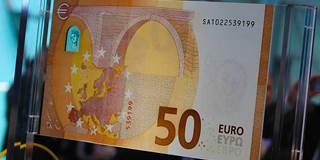Since the 2008 financial crisis, the conventional wisdom has been that a long, difficult recovery for eurozone economies will eventually lead to strong growth. But this narrative is losing credibility, as various trends suggest that Europe is trapped in a semi-permanent low-growth equilibrium.
MILAN – A knowledgeable friend in Milan recently asked me the following question: “If an outside investor, say, from the United States, wanted to invest a substantial sum in the Italian economy, what would you advise?” I replied that, although there are many opportunities to invest in companies and sectors, the overall investment environment is complicated. I would recommend investing alongside a knowledgeable domestic partner, who can navigate the system, and spot partly hidden risks.
Of course, the same advice applies to many other countries as well, such as China, India, and Brazil. But the eurozone is increasingly turning into a two-speed economic bloc, and the potential political ramifications of this trend are amplifying investors’ concerns.
At a recent meeting of high-level investment advisers, one of the organizers asked everyone if they thought the euro would still exist in five years. Only one person out of 200 thought that it would not – a rather surprising collective assessment of the trending risks, given Europe’s current economic situation.

MILAN – A knowledgeable friend in Milan recently asked me the following question: “If an outside investor, say, from the United States, wanted to invest a substantial sum in the Italian economy, what would you advise?” I replied that, although there are many opportunities to invest in companies and sectors, the overall investment environment is complicated. I would recommend investing alongside a knowledgeable domestic partner, who can navigate the system, and spot partly hidden risks.
Of course, the same advice applies to many other countries as well, such as China, India, and Brazil. But the eurozone is increasingly turning into a two-speed economic bloc, and the potential political ramifications of this trend are amplifying investors’ concerns.
At a recent meeting of high-level investment advisers, one of the organizers asked everyone if they thought the euro would still exist in five years. Only one person out of 200 thought that it would not – a rather surprising collective assessment of the trending risks, given Europe’s current economic situation.